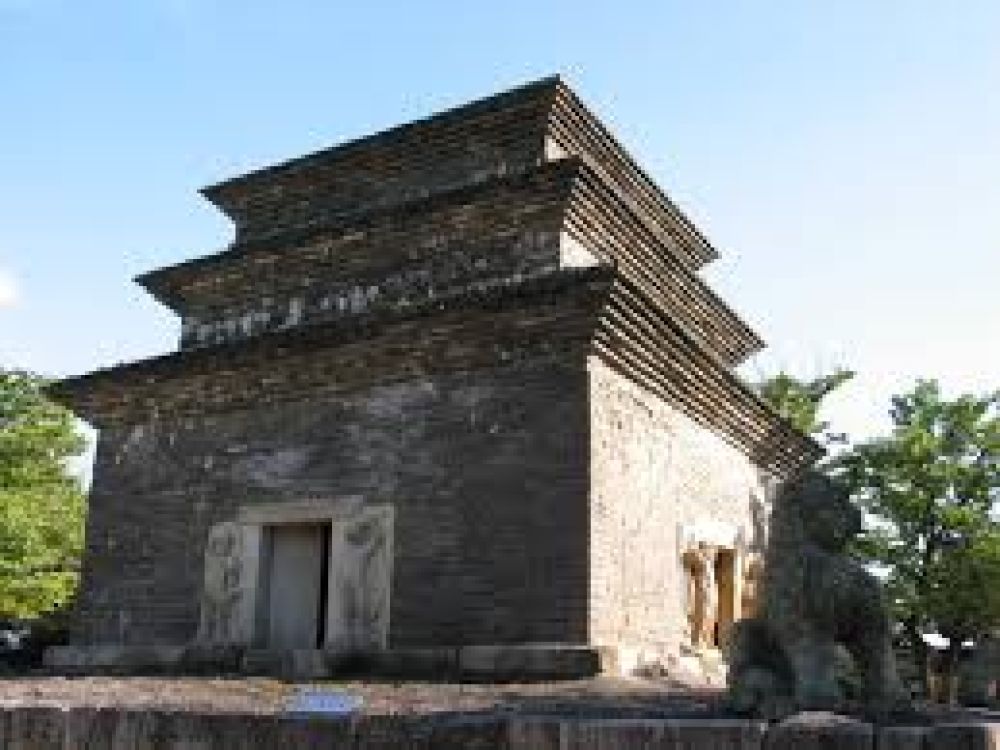Food History of Bunhwangsa Temple, Gyeongju, South Korea
The history of food around Bunhwangsa Temple in Gyeongju is deeply intertwined with the history of the Silla Dynasty, as Gyeongju was the capital of this ancient Korean kingdom. The temple itself dates back to the 7th century and plays a crucial role in Korea’s Buddhist history. Many traditional Korean dishes have their roots in the temple's cuisine, as monastic life significantly influenced the vegetarian aspect of Korean food culture. Monks and nuns cultivated the principles of balance and moderation in their diets, focusing on vegetarian meals with seasonal and local ingredients. The temple's surrounding area has upheld these traditions, with many restaurants offering dishes rooted in the region’s historical palate, especially those that are plant-based.
Must-Try Top 10 Food Dishes in Bunhwangsa Temple, Gyeongju for Tourists
- Bibimbap (Vegetarian) - A mixed rice dish served with an assortment of fresh and seasoned vegetables, often topped with a fried egg.
- Kimbap (Can be vegetarian) - Seaweed rice rolls filled with vegetables, sometimes with the addition of egg or fish cakes.
- Pajeon (Can be vegetarian) - A savory pancake made with green onions and various other ingredients like seafood or kimchi.
- Hoddeok (Vegetarian) - A sweet pancake with a syrupy filling, often containing brown sugar, honey, chopped peanuts, and cinnamon.
- Japchae (Can be vegetarian) - Stir-fried glass noodles with vegetables and sometimes meat, but vegetarian options are readily available.
- Haemul Pajeon (Non-veg) - A variant of Pajeon with added seafood.
- Tteokbokki (Can be vegetarian) - Spicy stir-fried rice cakes typically with fish cakes, but purely vegetarian versions exist.
- Yukgaejang (Non-veg) - A spicy soup with shredded beef, scallions, and fernbrake.
- Mandu (Can be vegetarian) - Dumplings that can be filled with a variety of fillings, including vegetables or seafood.
- Bingsu (Vegetarian) - A popular shaved ice dessert with sweet toppings such as chopped fruit, condensed milk, red beans, and more.
Top Famous Restaurants in Bunhwangsa Temple, Gyeongju
While there is a range of restaurants in Gyeongju, here are a few reputed ones near Bunhwangsa Temple:
- Silla Millennium Park Hanjeongsik Restaurant
- Address: 716-70, Sinpyeong-dong, Gyeongju-si, Gyeongsangbuk-do
Famous Food: Hanjeongsik (Traditional Korean Set Meal) (Can be vegetarian upon request)
- Gyeongju Hanwoo Village
- Address: 44 Bomun-ro 33-gil, Gyeongju, Gyeongsangbuk-do
Famous Food: Hanwoo beef dishes (Note: Hanwoo is Korean native cattle, excluded per request)
- JungAng Restaurant
- Address: 24-1 Gyochonan-gil, Gyeongju, Gyeongsangbuk-do
Famous Food: Dakbokkeumtang (spicy chicken stew) (Non-veg)
- Gyeongju Tongiljeon
- Address: 106-5, Cheongun-dong, Gyeongju, Gyeongsangbuk-do
Famous Food: Japchae (Can be vegetarian)
- Hwangnam Bread Bakery
- Address: 22-1, Taejong-ro, Gyeongju, Gyeongsangbuk-do
Famous Food: Hwangnam-ppang (Hwangnam bread) (Vegetarian)
Please note that the addresses provided are approximate, and it is best to verify the current location and offerings of the restaurants before visiting. Moreover, when looking for vegetarian options, it is advisable to inquire at the restaurant, as some Korean dishes may have hidden non-vegetarian ingredients like seafood-based broth in seemingly vegetarian dishes.

